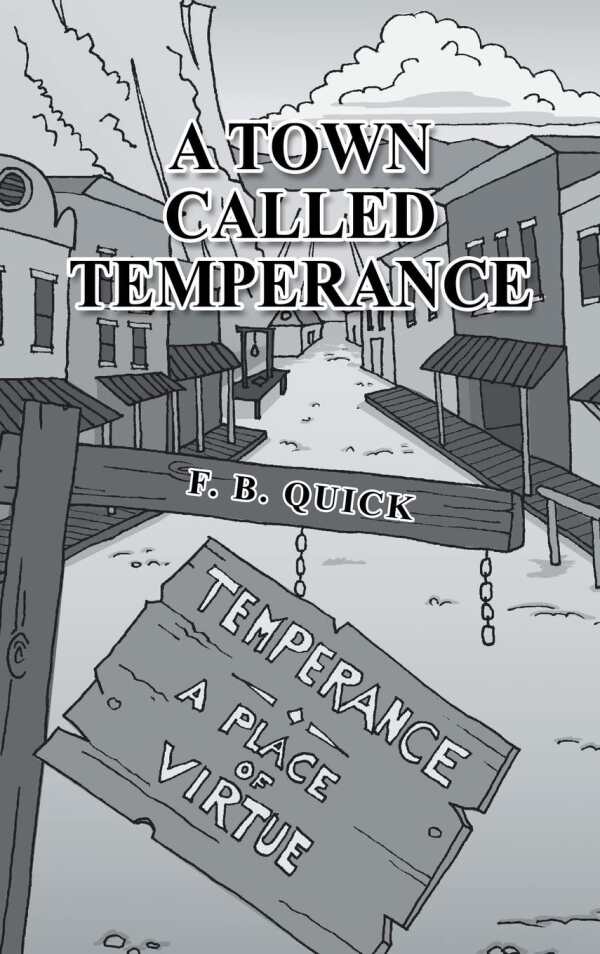A Town Called Temperance
An eccentric group bands together with a wanted man to seek justice and combat bigotry in the historical novel A Town Called Temperance.
In F. B. Quick’s historical novel A Town Called Temperance, a recent widower is accused of murder and fights to clear his name.
William was never around when his wife Abigale needed him: he carries the guilt of this fact with him after she is murdered. Believing that he might have prevented her murder if he had been there, he embarks on a quest for vengeance. However, he has a bounty hunter on his heels who is determined to see him hang, whether for the murder of his wife or for theft.
On the run in 1870s Arizona, William enters the closest town he finds, Temperance. It’s a place where debauchery rules: there are Ku Klux Klan activities, illegal hangings, assaults, violent brawls, and alcohol frenzies each night. Temperance’s colorful residents are also willing to help William to seek justice, even when this involves illegal methods.
The plot unfolds in medias res, with William facing certain death until a stroke of luck offers him a chance to escape. For a brief period, he narrates alone. But once he meets Tommy and a brave bordello owner, Momma, they share narrative duties, supplying the information that he needs to progress. However, there is much discussion about what is to be done before the book’s action unfolds; tedium and repetition ensue. Further, simple black-and-white drawings are sometimes present in the place of formal worldbuilding in the prose.
The principal cast is fleshed out in a distinctive manner. William is in the midst of an identity crisis: he never wanted to be like his father, but he wonders who he will have to become to forgive himself for Abigale’s death. He is almost obsessed with the belief that if he kills Abigale’s murderer, all will be well. And Momma is characterized as a fearless woman who’s determined to protect her girls and Tommy, even if doing so involves deceit. But beyond this trio, most of Temperance’s townsfolk are mere featureless observers, monitoring happenings in the town and never truly participating in the story’s progression. The Ku Klux Klan characters are flat and and indistinguishable from one another; they explain how they became how they are in conversation, but these interjections are awkward and distracting. Further, the story’s conclusion is too dramatic and unconvincing to be satisfying.
In the histrionic vengeance novel A Town Called Temperance, an eccentric group bands together with a wanted man to seek justice and combat bigotry.
Reviewed by
Gabriella Harrison
Disclosure: This article is not an endorsement, but a review. The publisher of this book provided free copies of the book and paid a small fee to have their book reviewed by a professional reviewer. Foreword Reviews and Clarion Reviews make no guarantee that the publisher will receive a positive review. Foreword Magazine, Inc. is disclosing this in accordance with the Federal Trade Commission’s 16 CFR, Part 255.

